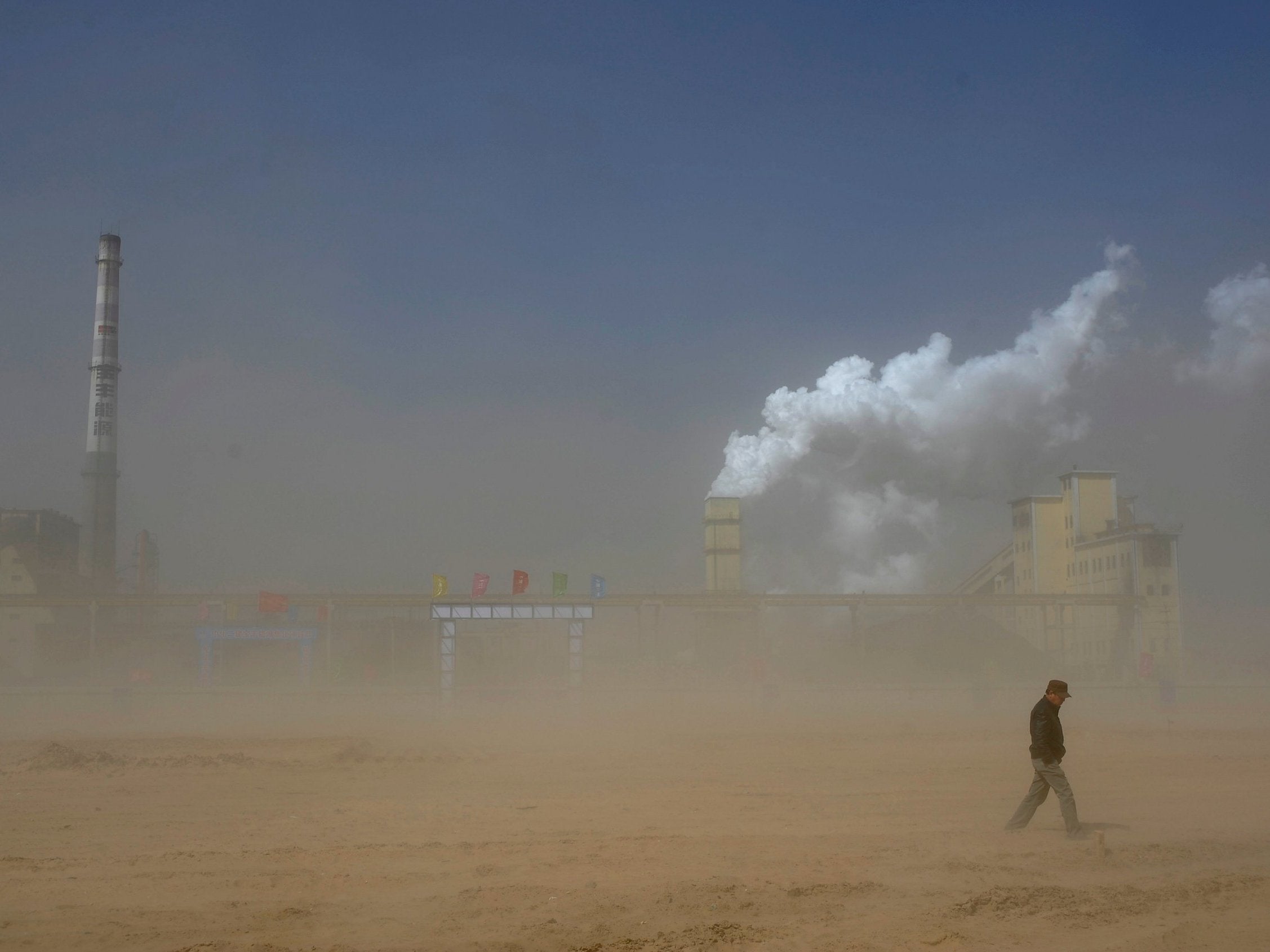China and Russia's climate plans could push global temperature rises above 5C, new study warns
Report reveals projected impact of each country's UN emissions pledge

Dozens of countries including China and Russia are pursuing environmental policies that would lead to global warming-linked temperature rises exceeding 5C by the end of the century, a new study shows.
Researchers warned of a “collective lack of ambition” that threatened to see a potentially dangerous rise in global temperatures, with current US carbon commitments on course to push global temperature rises to 4C compared with pre-industrial levels.
The study, by researchers at the Australian-German Climate & Energy College, University of Melbourne and Potsdam Institute for Climate Impact Research, is the first to assess the ambition of countries by their climate change pledges to the UN.
The report collates the temperature rises that would be seen globally if the emissions pledge of any one country were applied around the world.
The UK’s efforts rank averagely compared with other EU nations. Were the rest of the world to follow the British government’s lead, projected global temperatures would climb by 2.9C, the data shows.
Several other nations, including Canada, New Zealand, South Africa and Argentina are set to top 5C rises on their current trajectory, the report published in Nature Communications found.
Researchers hope the study will make it easier for members of the public and climate lobby groups to take legal action against governments who are failing to tackle the environmental threat.
It will also help policy makers to assess what more needs to be done to meet the global emissions targets under the Paris Agreement.
As part of that accord, the decision was made to “pursue efforts to limit the temperature increase to 1.5C above pre-industrial levels”.
In total, 195 countries signed the accord and 173 have become party to the document which aims to curb global carbon emissions and contain global warming.
However, Donald Trump withdrew the US from the agreement last year, claiming it put American workers – particularly in the coal industry – at an “economic disadvantage".
Although the agreement aimed to keep global temperatures “well below” 2C above pre-industrial times, the more ambitious target of 1.5C is seen as the best way to avoid the harmful impacts of climate change.
These include devastating natural disasters such as droughts and flooding, which are increasingly being directly linked with rising temperatures.
The data shows that much of sub-Saharan is on track to fall well below the 1.5C target, with most at or below 1.2C.
But much of Asia, the Middle East and North and South America are due to far exceed the 1.5C target that experts agree is the best way to avoid the harmful impacts of climate change.
“The greenest countries on this assessment are the least developed,” Yann Robiou du Pont, co-author of the study, told The Independent.
“Given that they pollute so much less, have polluted so much less and have low per capita GDP, they could increase their emissions to some extent, and that would be fair.”
But he added: “Many industrialised countries perform poorly. After all, we know that industrialisation brought climate change.
“That does not mean that industrialised countries cannot act on it.
“Also, some are performing significantly better than others. The EU does better than the US, Canada or Australia.
“But again, this only reviews the commitments, and does not say whether countries will actually meet them, or maybe even over perform.”
Mr Robiou du Pont said world emissions “are not on track at all to limit warming to 1.5C” but added that there were still reasons to be optimistic, including an increase in legal proceedings against governments accused of inaction.
Increased involvement by local and regional governments, such as states and cities, to aid the fight also give cause for hope, he said.
The full map and data can be accessed here.
Subscribe to Independent Premium to bookmark this article
Want to bookmark your favourite articles and stories to read or reference later? Start your Independent Premium subscription today.

Join our commenting forum
Join thought-provoking conversations, follow other Independent readers and see their replies